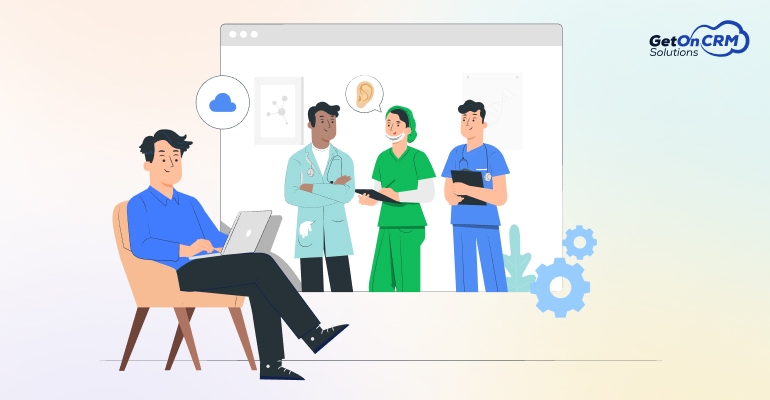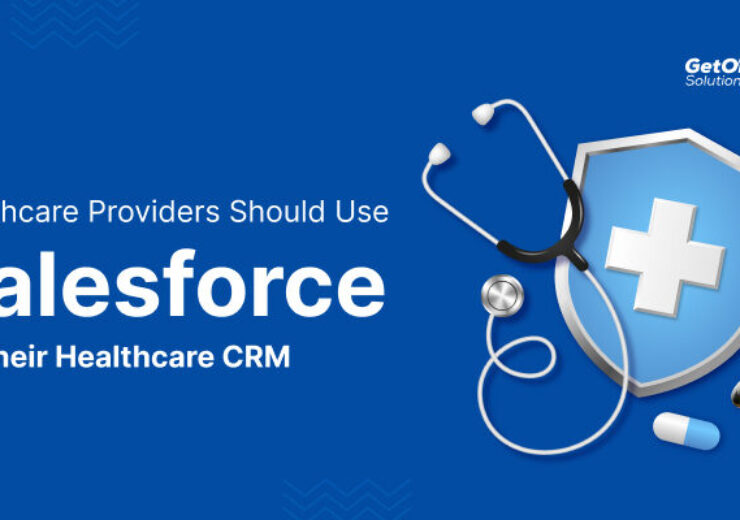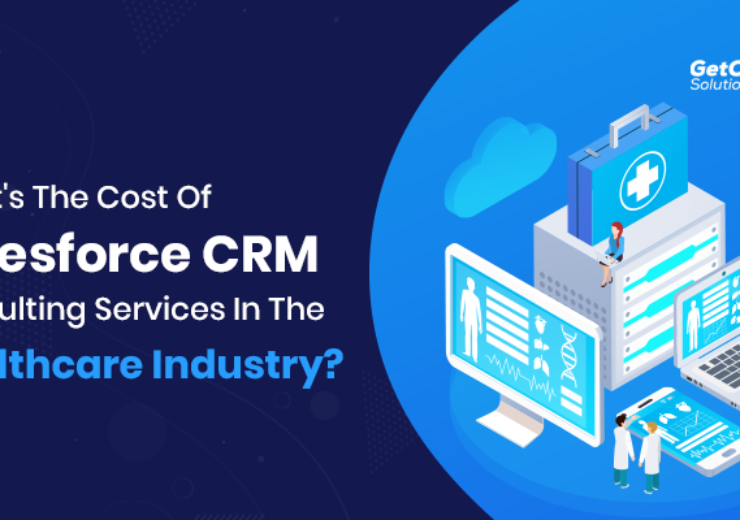
What Impact Does CRM Technology Have On Auditory Health?
- January 30, 2024
- 8 minutes
- 1102
|
GetOnCRM Solutions
Getting your Trinity Audio player ready...
|
Customer Relationship Management (CRM) technology is becoming essential in developing patient care, particularly in auditory health. It improves communication, data management, and personalized patient engagement in healthcare. It creates connections between healthcare providers and patients, resulting in an in-depth understanding of individual requirements.
As technology advances, the adoption and adaptation of CRM systems in healthcare settings shows its ability to improve the quality of life for people with hearing impairments by organizing a seamless blend of efficiency and compassionate care.
Auditory Health Care Excellence with CRM Integration
CRM technology serves as a conductor that creates an ideal combination of benefits in auditory health care.
-
CRM Technologies Impact
Salesforce CRM technology improves patient experience in auditory health care by automating reminders and delivering individualized messages. These elements are critical for people with hearing problems because they keep them engaged and provide timely information. The personalized communication guarantees that patients are well-informed and actively involved in their healthcare experience.
-
Effective Scheduling and Management
CRM systems improve appointment administration for healthcare providers, which is particularly important for patients with hearing difficulties. CRM technology ensures consumers receive customized treatment that addresses their auditory health needs by shortening wait times and increasing overall satisfaction. This efficiency is beneficial in hospital settings, where timely and correct scheduling is critical.
-
Continuous monitoring and timely follow-ups
CRM technologies provide ongoing monitoring and proactive follow-up for auditory health management. This immediate involvement enables healthcare providers to recognize and manage changes or difficulties quickly. That guarantees that individuals with auditory problems regularly monitor their health status, resulting in quicker interventions and better outcomes.
-
Personalized Patient Care
CRM technology in healthcare uses data analytics to provide valuable insights into treatment success and patient demographics. Data enables healthcare practitioners to customize therapies and interventions for patients’ auditory health concerns. It improves the precision of diagnosis and treatment planning, resulting in higher-quality patient care.
-
Improved Communication
CRM systems enable clear and efficient communication for auditory health management. That is critical for appropriate communication among healthcare providers, patients, and support staff. Clear communication is essential in meeting the specialized needs of patients with hearing impairments, ensuring that critical information is accurately transmitted for optimal patient care.
-
Targeted outreach and awareness
CRM technology enables healthcare practitioners to launch targeted outreach and awareness campaigns about auditory health services and resources. CRM solutions guarantee that people with hearing impairments know available services through segmentation and targeted messaging, promoting a proactive approach to auditory health.
-
Compliant Record-Keeping
CRM’s robust documentation features are critical to maintaining accurate and compliant patient records, especially for diagnosing and treating auditory issues. CRM technology helps healthcare practitioners meet regulatory criteria and provide high-quality auditory health care by guaranteeing accurate and structured documentation.
Choosing the Ideal CRM for Auditory Health
-
Integrated Billing and Payment
Choosing a CRM solution with strong billing integration guarantees smooth financial procedures in auditory health care. This functionality simplifies billing and payment, lowering the manual strain on healthcare providers. It provides accuracy and openness, improving the healthcare facility’s overall efficiency.
-
User Friendly Scheduling
Choosing a CRM solution with excellent scheduling capabilities is critical for reducing appointment disruptions in auditory health care. A user-friendly scheduling system enables healthcare providers to handle appointments more efficiently, minimizing wait times for patients with hearing impairments. It improves the patient experience and helps overall happiness.
-
Provides Unified Patient Data
CRM systems that integrate unified patient data give an accurate and quickly accessible source of information for auditory health care. It ensures that healthcare practitioners have up-to-date and accurate data, allowing for more precise diagnosis and treatment planning. Centralized records also contribute to regulatory compliance.
-
Cost and time efficiency
Evaluating CRM solutions for their ability to reduce administrative burden is crucial for achieving cost and time reductions in auditory health care. A well-integrated CRM system automates repetitive activities, freeing healthcare personnel to concentrate on patient care rather than administrative responsibilities. This efficiency results in cost savings and better resource usage.
-
Optimized Resource Allocation
The correct CRM system reduces procedural duties to help healthcare providers allocate resources more efficiently. It ensures that essential resources such as time, personnel, and facilities are efficiently allocated, focusing on patient care rather than administrative operations. This focus on efficiency is significant in auditory health care, where quick treatments can make a big difference in outcomes.
-
Increased Patient Engagement
Prioritizing CRM solutions that provide personalized communication and educational opportunities increases patient engagement in auditory health care. Customized communication ensures that people with hearing impairments get information in the required format, resulting in a more involved and informed patient population. Educational opportunities encourage patients to participate actively in their auditory health management.
-
Salesforce is your perfect choice for healthcare CRM
Salesforce is an excellent choice for healthcare CRM, providing a secure and scalable platform with integrated billing, scheduling, and unified patient data functionality. Salesforce improves patient engagement with individualized communication and teaching tools, providing a complete solution for the particular demands of auditory healthcare.
Also Read: Utilizing Healthcare Marketing Automation For Enhanced Patient Experience
How the Right Consultant Can Help You Implement a CRM Cloud
A qualified CRM cloud consultant is essential for successfully installing a Customer Relationship Management (CRM) system. Customization, setup, and data migration are all seamlessly managed, which allows the CRM to be adapted to specific workflows. Integration with existing systems is possible, resulting in a cohesive company environment. User training, change management, and communication tactics are used to increase user acceptance.
Ongoing support, monitoring, and optimization guarantees that the CRM evolves to meet changing business requirements while prioritizing compliance, security, and scalability planning. The consultant is crucial in maximizing the benefits and ROI from CRM implementation.
Choosing the Right CRM Partner
Select a CRM partner with extensive expertise in CRM solutions and industry-specific experience. Strong vendor relationships and wise association with Salesforce are crucial. Look for client references and case studies to assess their successful track record. Emphasize customization capabilities to adapt the CRM system to your business processes. Ensure the partner provides ongoing support and training for a smooth transition.
Benefits of a CRM Partner
Here are key advantages that highlight the significance of partnering with experts in CRM implementation and optimization:
- Accelerated Implementation: Engaging a Salesforce consulting partner speeds up installation and reduces deployment time.
- Cost Savings: Efficient implementations, reduced errors, and simplified workflows lead to overall cost savings.
- Maximized System Capabilities: Expert guidance helps unlock advanced features, maximizing the potential of your CRM system.
- Strategic Advice: Receive strategic guidance aligning CRM tactics with overall corporate objectives.
- Continuous Optimization: CRM partners with Salesforce knowledge provide continual tuning, keeping your CRM system efficient and relevant.
- Smooth Integration: Choosing GetOnCRM ensures seamless integration, maximizing the benefits of Salesforce solutions for your business.
- Proven Track Record: GetOnCRM’s solid track record and strong vendor relationships make us a reliable choice for CRM setup and optimization expertise.
Case Studies: CRM Technology Enhancing Auditory Health Care
1. Streamlining Patient Care at HearWell Clinics
- Background: HearWell Clinics, a network of auditory health centres, implemented a CRM system to enhance patient care.
- Implementation: The CRM system automates appointment scheduling, patient reminders, and follow-up communications.
- Outcome: Improved patient satisfaction due to reduced wait times and more personalized care. The clinic also saw an increase in patient adherence to treatment plans.
2. Enhancing Auditory Health Services with AI-Enabled CRM
- Background: Auditech, a provider of hearing aids and auditory health services, integrated AI capabilities into their CRM system.
- Implementation: AI was used to analyze patient data for personalized treatment and to predict patient needs.
- Outcome: Enhanced precision in treatment plans and proactive patient care, leading to better health outcomes and patient engagement.
3. Tele-Audiology Services by SoundLife
- Background: SoundLife introduced tele-audiology services, leveraging CRM technology to manage remote consultations and care.
- Implementation: CRM tools were used for scheduling virtual appointments, sharing auditory health resources, and remote patient monitoring.
- Outcome: Expanded reach to patients unable to visit in person, with high satisfaction rates due to the convenience and effectiveness of remote care.
4. Global Outreach in Auditory Health with CRM
- Background: GlobalEar, an international NGO, used CRM technology for its global auditory health awareness campaigns.
- Implementation: Targeted outreach and awareness campaigns were conducted using CRM tools to identify and reach specific demographics.
- Outcome: Increased awareness and access to auditory health services in underserved regions, significantly improving community health metrics.
5. Integrated Auditory Health Management at City Hospital
- Background: City Hospital integrated CRM technology into its auditory health department to streamline operations.
- Implementation: The CRM system was used for unified patient data management, billing, and department communication.
- Outcome: Enhanced efficiency in patient management, reduced administrative burden, and improved interdisciplinary collaboration for comprehensive patient care.
Conclusion
CRM technology is transforming auditory health care by automating and personalizing communication, which leads to better patient experience. CRM promotes precision and engagement by combining efficient scheduling, constant monitoring, and analytical patient care.
The optimal CRM system should prioritize integrated billing, user-friendly scheduling, and centralized patient data. This impact extends to business environments, where CRM is crucial to customer relations, operational efficiency, and strategic growth. CRM is a critical catalyst in healthcare and business, integrating procedures and driving better outcomes, making it a must-have tool for modern organizations.





